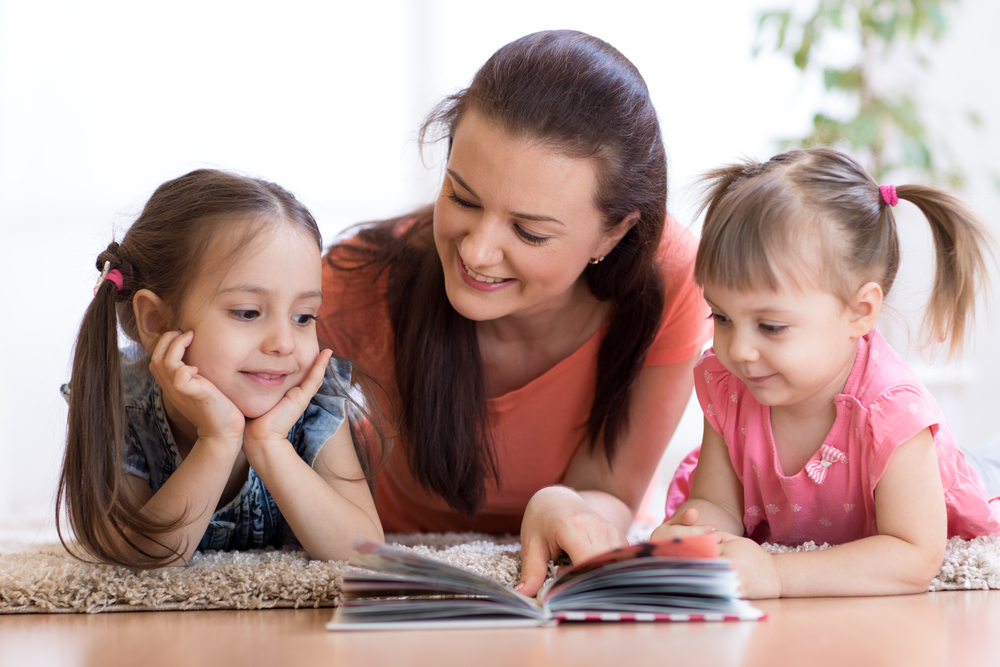Critical thinking development Reading Worksheets for Ages 3-8
5 filtered results
-
From - To
Unlock your child’s potential with our specially designed Critical Thinking Development Reading Worksheets for Ages 3-8. These vibrant, educational printables from Kids Academy engage young minds with puzzles, stories, and problem-solving activities. Encourage analytical thinking, improve reading comprehension, and build strong foundational skills through fun exercises. Perfectly tailored for preschool to early elementary students, our worksheets help children develop critical thinking abilities that are crucial for lifelong learning success. Join Kids Academy today and watch your child's cognitive growth flourish with every page!
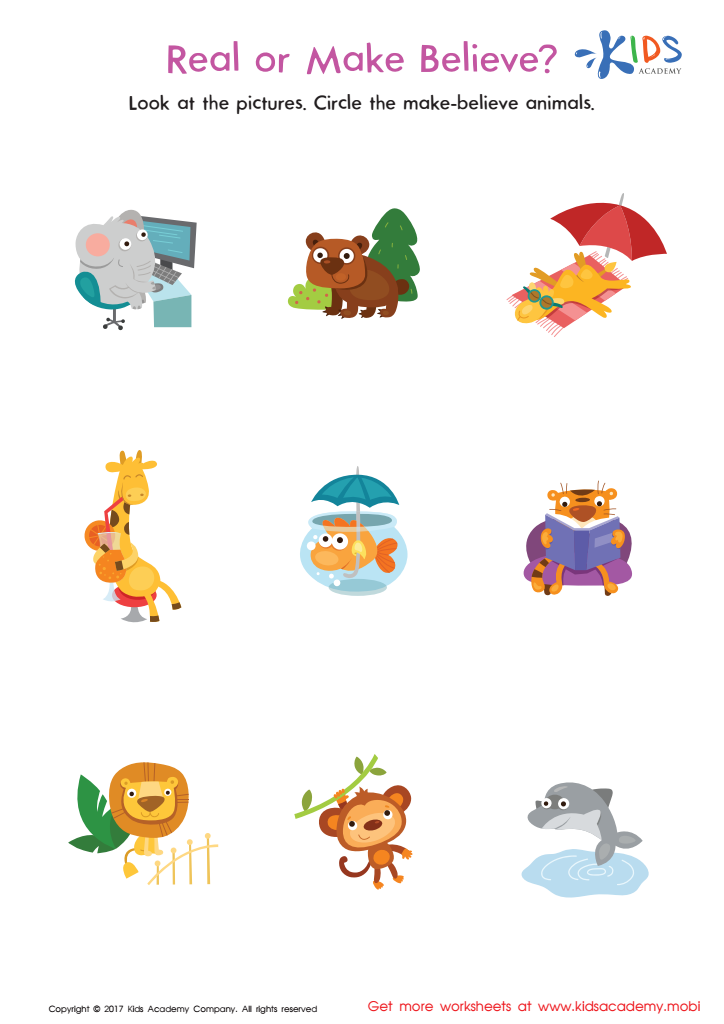

Fact or Make Believe Worksheet
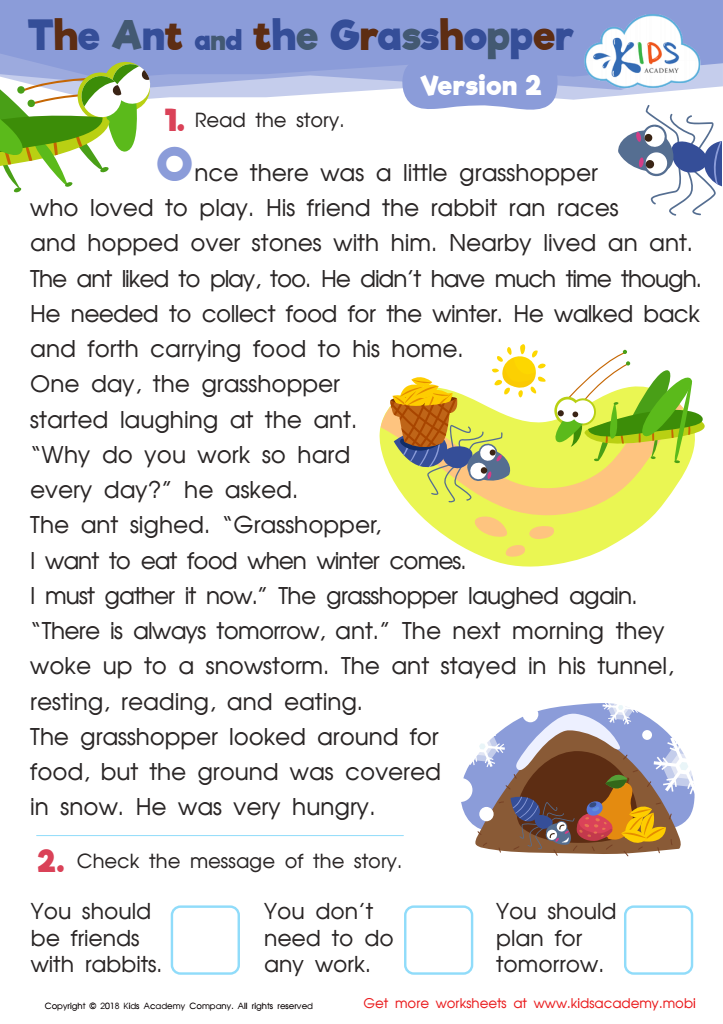

The Ant and The Grasshopper Version 2 Worksheet
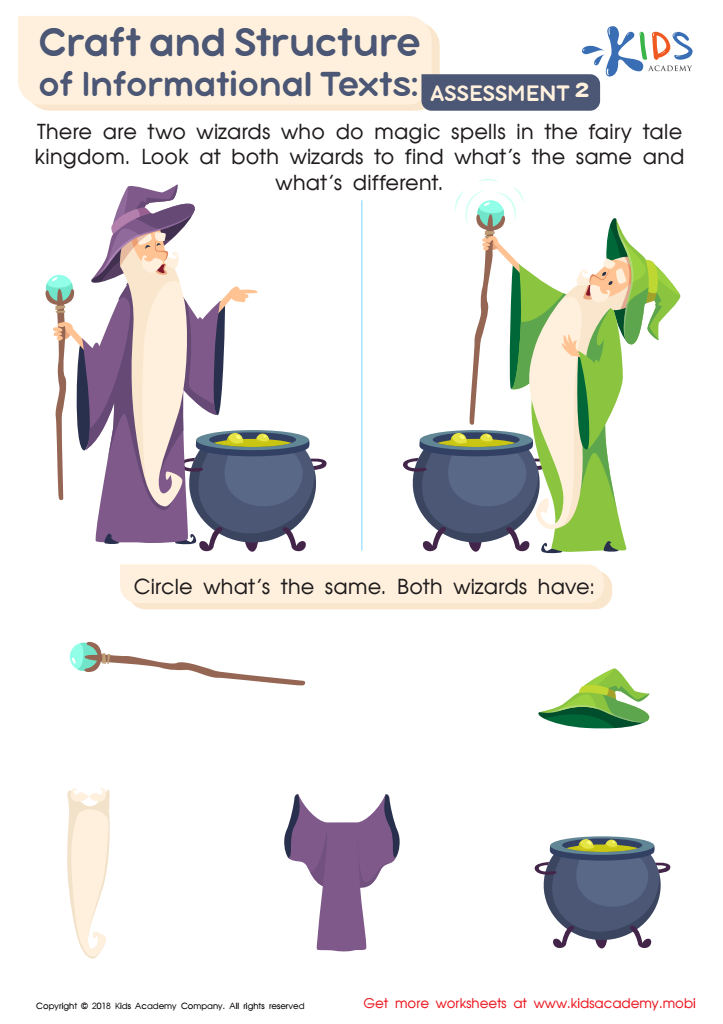

Craft and Structure of Informational Texts: Assessment 2 Worksheet
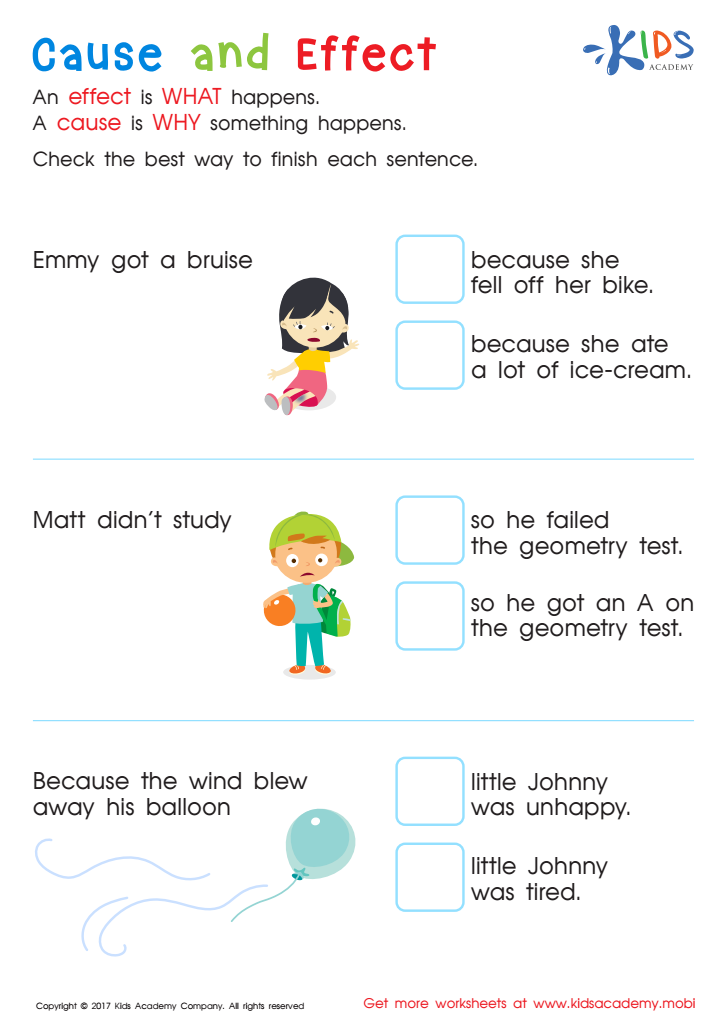

Cause and Effect Worksheet
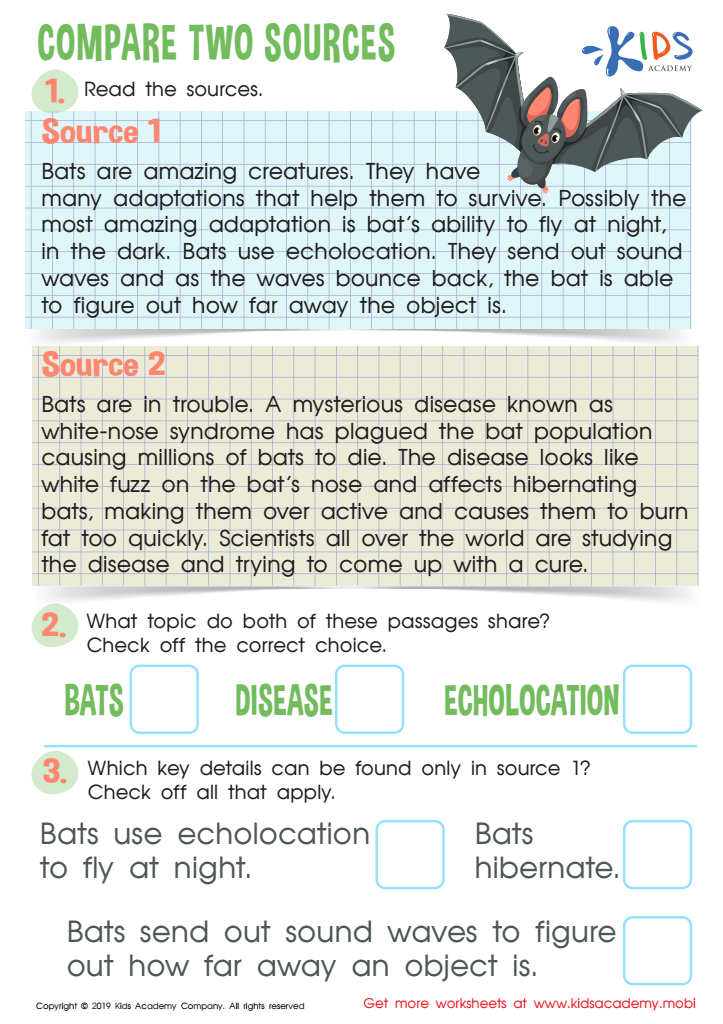

Compare Two Sources Worksheet
Critical thinking development through reading for children ages 3-8 is crucial because it lays a strong foundation for lifelong learning and decision-making. By engaging young minds in critical thinking activities, parents and teachers empower children to analyze, question, and understand the world around them. This age range is vital for cognitive and language development, making it the perfect time to introduce critical thinking skills.
For instance, when children are asked to predict what happens next in a story, they learn to anticipate and make educated guesses, a key aspect of critical thinking. Similarly, discussing the motivations of characters helps them understand different perspectives and enhance empathy. Encouraging children to explain their reasoning fosters communication skills and logical thinking.
Moreover, critical thinking nurtured through reading promotes curiosity and a love of learning. Children become active learners, eager to explore, ask questions, and seek out answers, which positively impacts their academic performance across all subjects. It also helps them become independent problem-solvers, capable of making informed decisions as they grow.
Ultimately, when parents and teachers prioritize critical thinking development, they equip children with essential skills that serve as building blocks for academic success, social interactions, and navigating life's challenges. These benefits underscore the importance of incorporating critical thinking into early reading practices.

 Assign to My Students
Assign to My Students





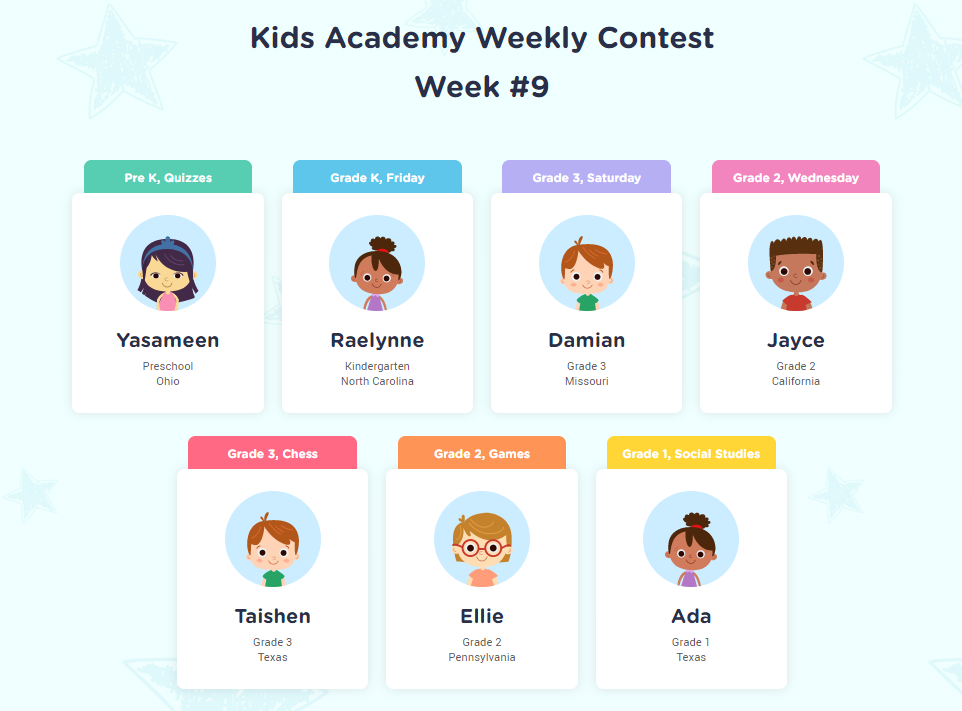
.jpg)
